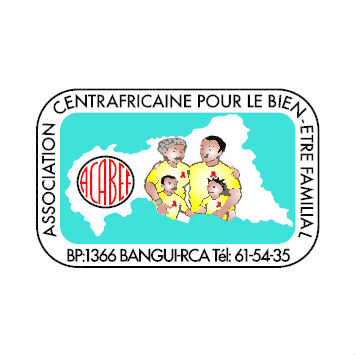

| 31 March 2016
Association Centrafricaine pour le Bien-Etre Familial
Sexual and reproductive health (SHR) statistics for the Central African Republic are some of the poorest on the continent. The need for proper, informed, accessible, safe, stigma-free sexual and reproductive health (SRH) services is paramount. The Association Centrafricaine pour le Bien-Etre Familial (ACABEF) came into being in 1987, expressly to address the urgent need for sexual and reproductive health (SRH) services. Working intensively within communities, the organization has grown rapidly over the years and now provides sexuality education and SRH services including family planning, gynaecological counselling and care, post-abortion care, antenatal care and voluntary counselling and testing (VCT) for HIV. ACABEF operates permanent and mobile clinics with community-based distribution sites (CBDs). In addition to full-time health personnel and administrative staff, the organization relies on the dedicated support of hundreds of volunteers, a Youth Action Movement and over a hundred trained peer educators. And ACABEF's outcomes are impressive. The majority of all services were provided to poor, marginalized, socially excluded and/or under-served people. ACABEF works in partnership with the government ministries in charge of planning, health and family and social affairs. It benefits from the support of CISJEU and its donors include UNFPA and Population Services International. ACABEF has close working relationships include CIONGCA (which coordinates the response of all NGOs working at national level), the Central African Network of People living with HIV (RECAPEV), the Réseau des Organisations Nationales de Lutte contre le SIDA (RONALSI) and Amis d’Afrique.

| 31 March 2016
Family Planning Association of Nepal
Established in 1959, the Family Planning Association of Nepal (FPAN) first joined IPPF in 1960 and become a full Member Association in 1969. When it was established, the idea of family planning was considered inimical to religious, cultural and social norms. With the institution of a government Maternal and Child Health Division in 1969, FPAN began to supplement and complement the national health and population programmes. Target populations include injecting drug users (IDUs), lesbian, gay, bi-sexual, trans-sexual and intersex (LGBTI) individuals, people living with HIV (PLHIV), survivors of gender-based violence (GBV) and trafficked returnees and refugees. FPAN serves these populations through an extensive network of 2,750 service points, comprising 127 static clinics, 116 mobile facilities, 184 associated clinics, 543 other agencies, and over 2,000 community-based distributors/services (CBDs/CBSs). Key areas of emphasis include adolescents' sexual and reproductive health, HIV and AIDS prevention and treatment, safe abortion, advocacy for sexual and reproductive health and rights (SRHR), the prevention of gender-based violence (GBV) and support for its victims, and the promotion of access to sexual and reproductive health (SRH) information and services to marginalized and under-served groups. With the dedicated backing of 450 full-time professional staff, 1000 community counsellors, 4000 peer educators and 11,000 grassroots volunteers, FPAN has the capacity to mobilize on a large scale, and with the support of over 20 governmental departments, non-governmental organizations (NGOs) and foundations, it has a secure funding base to maintain and expand its comprehensive programme of activities. Contacts Website: www.fpan.org







